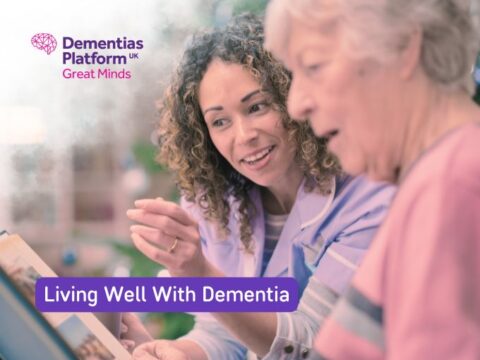This is one person’s experience of Co-Research. It’s important to remember that we are all individuals with unique experiences, although there are some common themes.
If someone had told me, the day after my diagnosis of Posterior Cortical Atrophy (PCA), that I would become a Co-Researcher earning at least £25/hour, up to £60, I would have laughed. Not because I was upset by my diagnosis—quite the opposite. I felt free to do what I wanted, when I wanted, if I wanted. I haven’t worn a wristwatch since! I was fed up with being poked, prodded, scanned, and enduring six lumbar punctures. However, the same could be said of anyone if, back in 2019, they were told we’d soon be locked down in our homes—we would have laughed.
The two situations are very much related. I live in rural Aberdeenshire, and while I was able to travel for a few years after my diagnosis, it wasn’t easy. But during the lockdown, online meetings became the norm, allowing me to talk and work with people all over the world. Without this opportunity, I would have withered away. My neurologist, whom I see every six months (he’s fascinated by my cognitive abilities), told me I would have been in residential care three years ago if not for all my research work. While the income is nice, it’s not the main reason I work—I began as a way to fill time during COVID, and now it keeps me active.
My first project began because, during the lockdown, I was extremely isolated. It was a co-production of the history of a short-lived Scottish charity, for which I am forever grateful. This project allowed me to feel empowered and independent. We worked through Teams, and during this time, I realised that the life skills I’d acquired through work were highly valuable in academia.
In the 1990s, I worked as a Benefit Fraud Officer. I had to interview people and quickly pick up on body language cues to gauge discomfort or deceit. This skill was crucial, especially when the interview was “Under Caution,” meaning it could be used in legal proceedings. I had to be right, or we would lose. When I left that job and took a BA degree in 1999, I learned that this was actually known as “Conversation Analysis.” During my fraud work, I also handled the Subsidy claim annually, which required me to teach myself how to identify outliers—a form of “Data Analysis,” as I later learned during my degree. Additionally, I needed to thoroughly understand Benefits Regulations, where the use or omission of a single comma could make or break a prosecution. The ability to scrutinise language became a skill I honed further in my degree. However, after graduation, I moved into Personal Care, where I earned minimum wage until my PCA diagnosis 14 years later. Even in that role, I used Conversation Analysis loosely, relying on my innate sense of non-verbal communication.
Looking back, it’s clear that I had a high cognitive reserve all along, but I was lazy. I attended a posh boarding school that emphasised academics, and my brother is an Oxbridge Don, so the genes and ability were there. I just preferred working with people over building a career.
I wouldn’t call dementia a superpower, but it has allowed me to work at an academic level. First, it gave me the time—initially because I no longer had to worry about paid work, and now because, unable to travel, I can keep my brain active.
More importantly, PCA affects me in a specific way. Some call it “brain blindness” because it severely affects vision. However, I prefer the term “brain deafness.”
When I read, whether it’s a trashy thriller or an academic paper, my brain subconsciously shuts off my hearing so I can focus entirely on the words. Similarly, when I listen or speak, my eyes close, something that’s particularly noticeable during online calls. The downside is that I can only work for about three hours a day, and I’m often asleep by 8 pm.
As you can see, I’d much rather be meaningfully involved in Co-Research. However, I make one exception: I allow my neurologist to poke, prod, and ask questions. There are only 50 people in Scotland with PCA, and I’m beating the odds.
I find that the academics I work with understand we are all part of a team, each bringing different perspectives and life experiences. In a future blog, I will share more examples of this.

Martin Robertson
Author
Martin Robertson is a lived experience researcher living in Scotland. He has been involved in a number of research projects and is passionate about co-production and public voice in research since his diagnosis with Posterior Cortical Atrophy, in 2016 aged 57.
Find Martin Robertson on LinkedIn

 Print This Post
Print This Post





